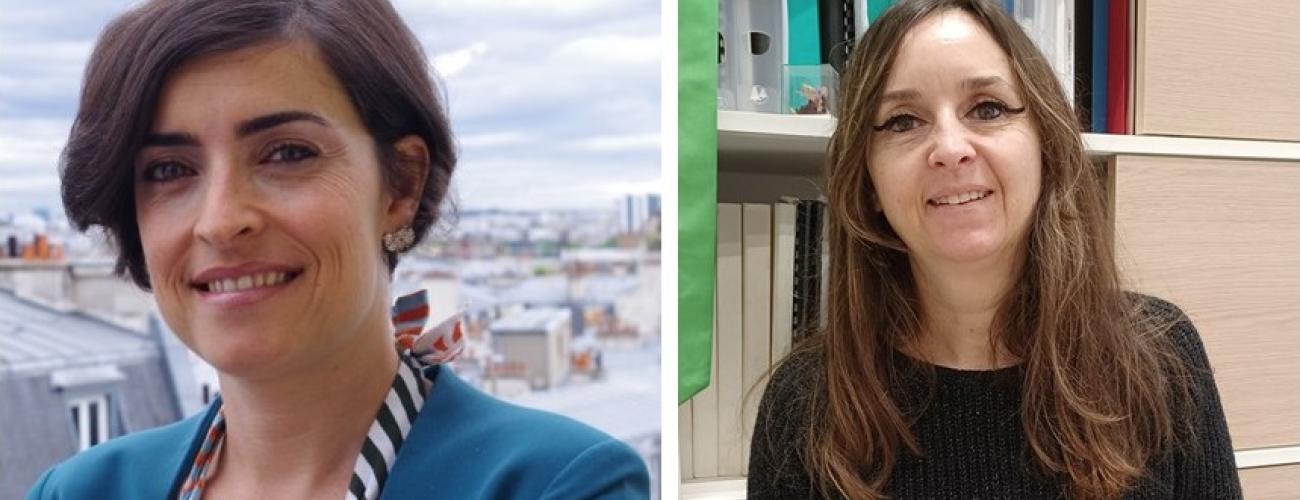
EELISA: Interview with Sofia Costa D'Aguiar and Sophie Griveau
Newsletter 12: Interview with Sofia Costa D'Aguiar and Sophie Griveau about EELISA
Interview with Sofia Costa D'Aguiar, EELISA Executive Director and Sophie Griveau, EELISA Dean of Studies
EELISA the European Engineering Learning Innovation Science Alliance, is one of the 41 European universities funded by the European Commission (Erasmus+). The alliance aims to transform the European engineering landscape by developing a higher education programme that is geared towards the biggest challenges currently facing humanity and that qualifies graduates to work anywhere in the European Union.
How do the EELISA partners work together?
SCA : Everyone is in touch with everyone else, which helps develop strong ties across the alliance. At the same time, the diversity of our member institutions is something we really value, so each member remains independent. Each partner heads up one of our nine working groups, and appoints representatives to all the other groups.
SG : Across the consortium, academic staff and students alike are keen to get involved in EELISA, which they can do through our working groups. Each group focuses on a specific topic. We’ve found that this model works very well.
Can you tell us more about your work on a European engineering degree?
SG : Our goal is to produce top-level European scientists and engineers who are equipped to tackle the complex challenges facing society today. Defining an EU-wide qualification is very much a collaborative task. To decide on the content and level and come up with a solution that works for everyone, we need input from all the institutions involved.
What is the role of the ParisTech schools?
SCA : The ParisTech schools have a key role to play in determining what our “European engineer” will look like. Each institution has its own national regulatory framework. We’ve got to make sure we understand those, and then combine them in a single European framework – that’s the job of the École des Ponts ParisTech. Chimie ParisTech – PSL is developing the content of the framework and looking at other aspects like staff training, multilingualism and so on. And MINES ParisTech – PSL is leading reflection on student mobility, inclusion and engagement.
SG : The École des Ponts ParisTech (with input from the other institutions) is working with accreditation bodies to get the degree accredited by various national and European authorities. It’s an essential but demanding task! As well as the core programme and modules – which students will be able to take at any member institution – there’s also internships and perhaps even summer schools to consider. Chimie ParisTech – PSL is tasked with defining the European engineering degree and setting up an EELISA course catalogue for students.
What are your plans for this year?
SCA : We’re planning lots of collaborative sessions to strengthen the alliance and set up communities based on the 17 Sustainable Development Goals. EELISA provides a neutral space where we can talk, share ideas, and set up platforms open to stakeholders from across the engineering world – people involved in innovation and research, businesses, NGOs and associations and more. This facilitates knowledge-sharing, which in turn sparks new ideas for addressing pressing issues. We’re going to set up a research-based learning model to share best practices and answer questions like “How can we bring research into the classroom?” and “How can we combine teaching and research and attract students – as early as possible – to careers in science and engineering?” Plans are also underway for an “EELISA Employability Forum” to promote career opportunities across Europe.
SG : We’ll be stepping up our efforts to inform students about the mobility and exchange programmes offered by each institution so that they can plan ahead and get involved in one of the EELISA communities. We hope that with France having taken over the presidency of the EU Council, we’ll be able to set up a European degree or another kind of qualification. That would be a good basis for setting up other courses in line with EELISA’s vision – a Bachelor’s degree for example.
- More than 500 students took part in a mobility or exchange programme in 2020/2021
- 180 000 students
- 16 000 academic staff
- 11 000 admin staff
- 36 agreements

